Zagreb Homeless Shelter to Close Because of Croatia Government Inaction
March 2, 2020 - Zagreb's homeless population could soon lose the roof over their heads. The only homeless shelter in Zagreb, which offers various forms of practical help and advice, is about to be closed permanently unless the Croatia government acts soon.
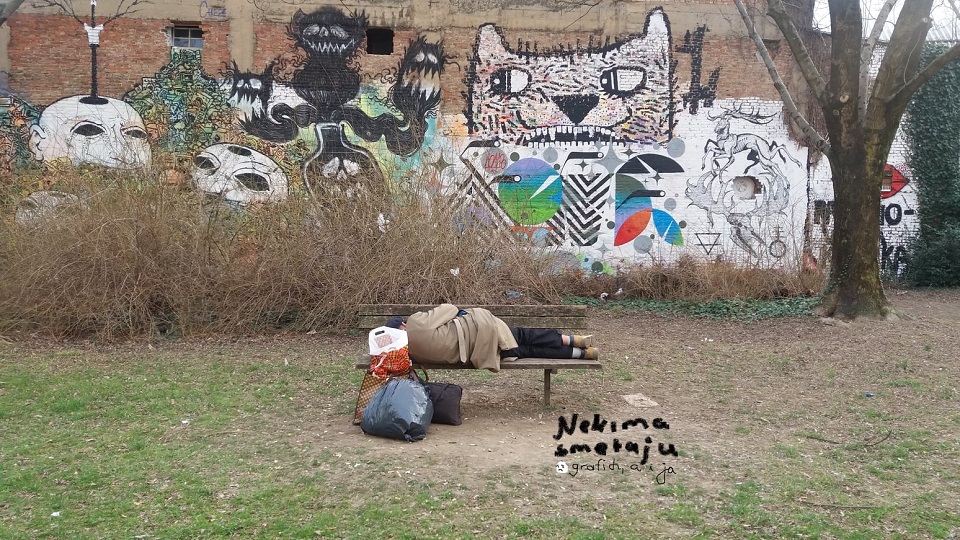
Homeless in Zagreb | HMB Facebook
Most Homeless Shelter Users Come from Slavonia
"This is the only place I can come without money and have coffee, get on the computer if I need to, or just warm up when it's cold… it’s the only place,” explains a younger user regarding his visit to the Homeless Assistance and Support Centre on Branimirova Ulica 53 in Zagreb. He is originally from Slavonia and, as he pointed out, would not know how to survive in Zagreb without this shelter, which is part of the Hrvatske mreže za beskućnike (Croatian Homeless Network).
"Because it's a relief to know that I can always come in from off the street if I need to or want to. Besides, we can also borrow a sleeping bag here or seek advice. It would be a big blow if they close the centre – for myself and many others,” he added.
Zagreb Shelter Will Close in Three Months: Contract Expires
As reported by Igor Lasić/DW on March 2, 2020; the Zagreb shelter's three-year contract with the government expires in three months. Therefore, by law, they will have to move out of their rented space. A new competition for a grant has not yet been announced. Even if it occurs in the meantime, it will be almost impossible for the rest of the procedure to be completed before that deadline. In reality, the work of the shelter can only be sustained by a gesture of extraordinary grace by the Government of Croatia, or the competent Ministry for Demography, Family, Youth and Social Policy.
"I found out about this shelter through Facebook. I’m from Slavonia and could not exercise my rights as a child of a war veteran, so I had to leave. The biggest advantage of this shelter is that it helps people find jobs. There is also a housing community, so that some people can find temporary accommodation here as well," the Slavonian continued.
The homeless young man has worked several jobs since, like food delivery and similar, but never for long. He has also worked abroad in entry-level construction jobs but said that he has faced various setbacks. He does not speak any foreign languages, so he cannot not even seek protection or better opportunities.
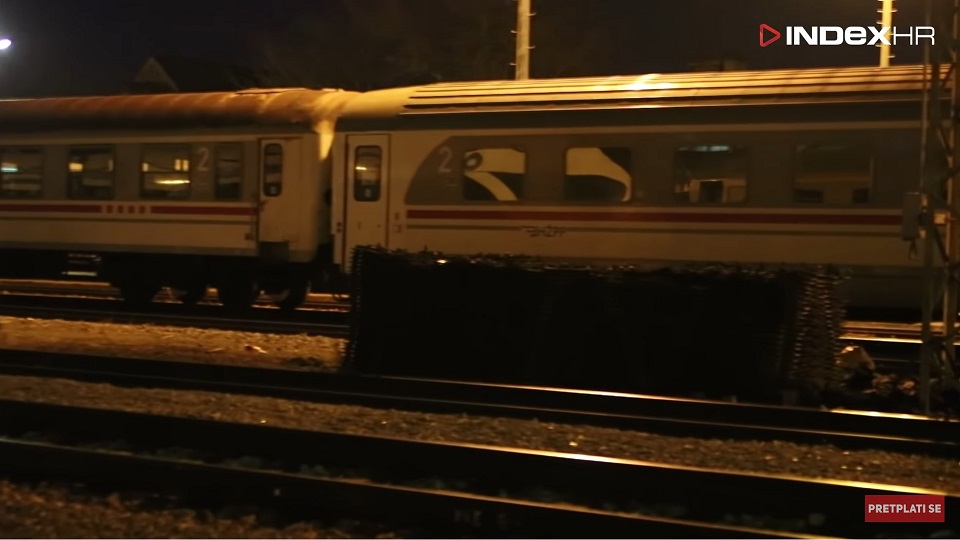
About 50 to 70 homeless live in abandoned railroad cars at the Zagreb Glavni Kolodvor according to HMB | Index YouTube
Thirty Visitors Per Day in Winter, 352 Registered Users
"Over twenty people come to our shelter daily, on average, and more than thirty in the winter, but we have a total of 352 registered users. Some just come for coffee, some for legal or other advice and some participate in our educational workshops. We also help users with finding a job, which is extremely important for re-socializing the excluded members of our society. But our best program is the residential community. In one apartment we have enabled a total of 32 younger users to become more independent over time and resume life from a more stable starting point. It is difficult for us, who have always had housing, to understand how important this is,” Slavko Mađor, manager of the shelter, revealed.
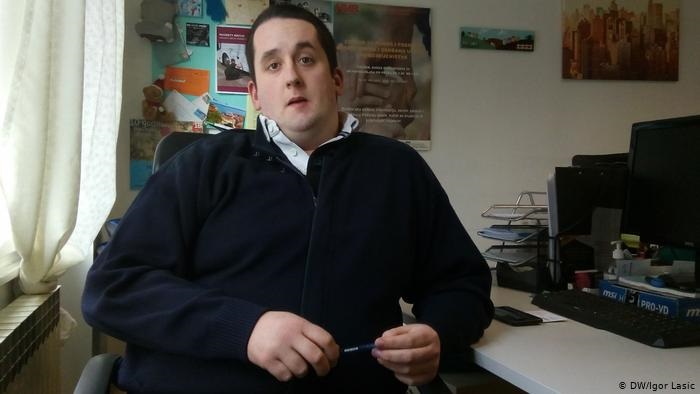
Slavko Mađor | DW Igor Lasic
"It is difficult for us to understand what it’s like when someone has to sleep in a public booth and then goes to work every day from there. Or how a person becomes homeless. Well, even my mother was surprised and asked me how this could be," explained Mađor.
Another user was from Zagreb. He did not want to be photographed or have his name published. With their permission, two other users were photographed at computers while working, but only from the back. It's not hard to grasp the backlash from publicity. An elderly lady sat in the entry, avoiding eye contact. Another entered the shelter and spoke to Slavko Mađor in English. She's French and has been coming for a while, and nobody knows what kinds of challenges she’s dealing with.
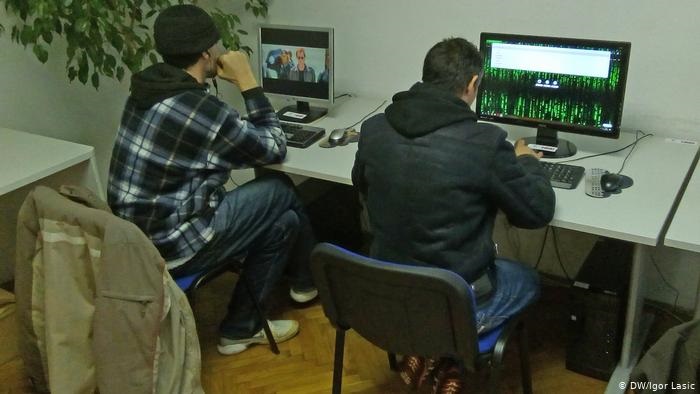
Zagreb Shelter Users | DW Igor Lasic
Shelter Offers Help, Food and Accommodation
"In a situation like this, it means a lot when people know that someone is available and willing to pay attention to them, let alone help with something else. This is more meaningful than just food and accommodation," summed up the man from Zagreb. He claimed to be 42 years old and is looking for a job after a temporary one ended, which he obtained through the shelter.
"In any case, I am not officially registered as a homeless person, but that is only because I can sleep with a friend in Velika Gorica right now," he explained.
"I used to be a waiter but now I’ll take any job I'm offered. And while I’m waiting, I’ll stop here and warm up, eat a sandwich, spend time at the computer and talk to people. We can talk like real people without fearing that someone will judge us because we are in a situation like this,” he added.

HMB Facebook
Only Homeless Shelter in Zagreb
The Homeless Help and Support Centre is just that: a place where the homeless can obtain help and necessities beyond just a meal or shelter. There aren’t any other facilities like this in Zagreb. And this is where the existentially afflicted from all over Croatia wind up. Most of them come from Slavonia because not only does Slavonia have the lowest standard of living and the weakest labour market; it also have the weakest social welfare system. But now the survival of this lone refuge is endangered, or at least extremely uncertain, until the government is willing to act.
Those who rely on this shelter to meet their essential needs and better their situation need not be left with a parting courtesy of hoping to meet again one day in the same place. In any event, upon vacating the building at Branimirova Ulica 53, at least the shelter will not have to remove their sign from the facade near the entrance, even if they must move out. It has already been removed, at the request of the occupants of the building, who own their homes.
Index Profiles Zagreb Homeless Man
Follow our Politics page for updates on this story and the challenges of the homeless population in Croatia. More information about the Hrvatske mreže za beskućnike (Croatian Homeless Network) can be found on their website here and Facebook page here.
Korean Air First Airline to Cancel Flights to Zagreb Due to Coronavirus
March 2, 2020 - Due to the fear of coronavirus, Korean Air is the first airline to cancel flights to Zagreb.
Namely, Index.hr reports that Korean Air has canceled its Seoul-Zagreb route. These flights were scheduled to begin on March 31, 2020, but were canceled by South Korea's national carrier Korean Air due to the spread of the coronavirus.
Their website lists the lines that have been canceled by each region of the world. Thus, several flights have been canceled for Europe, with some flying less frequently than before.
The line to Zagreb was canceled, according to current information, until April 23, 2020.
Recall that since the onset of the coronavirus epidemic, numerous flights of various airlines to many destinations have been canceled. The first airline to cancel its flights to Wuhan and parts of China was British Airways, which called for the safety of its staff and said it did not want to jeopardize them.
Some of the other companies, in turn, have said they are reducing the number of flights due to reduced demand.
In addition, South Korea, of which Korean Air is from, has the highest number of coronavirus infected after China with more than 4,000 cases.
More soon...
To read more about travel in Croatia, follow TCN's dedicated page.
Tomislav Ruszkowski, a Whiskey Professional of Zagreb
February 29, 2020 - There is a corner of Zagreb which is forever Scotland thanks to the whiskey passion of Tomislav Ruszkowski.
February, not such a cold month of the year anymore, yet whiskey lovers prefer to stay warm while tasting most exclusive and unique whiskeys. At the Bornstein Wine Bar in Zagreb, Tomislav Ruszkowski holds a whiskey evening once a month. In the last meeting, held on the February 24, 2020, the main topic was the Scottish island Islay and the considerable goodness it provides.
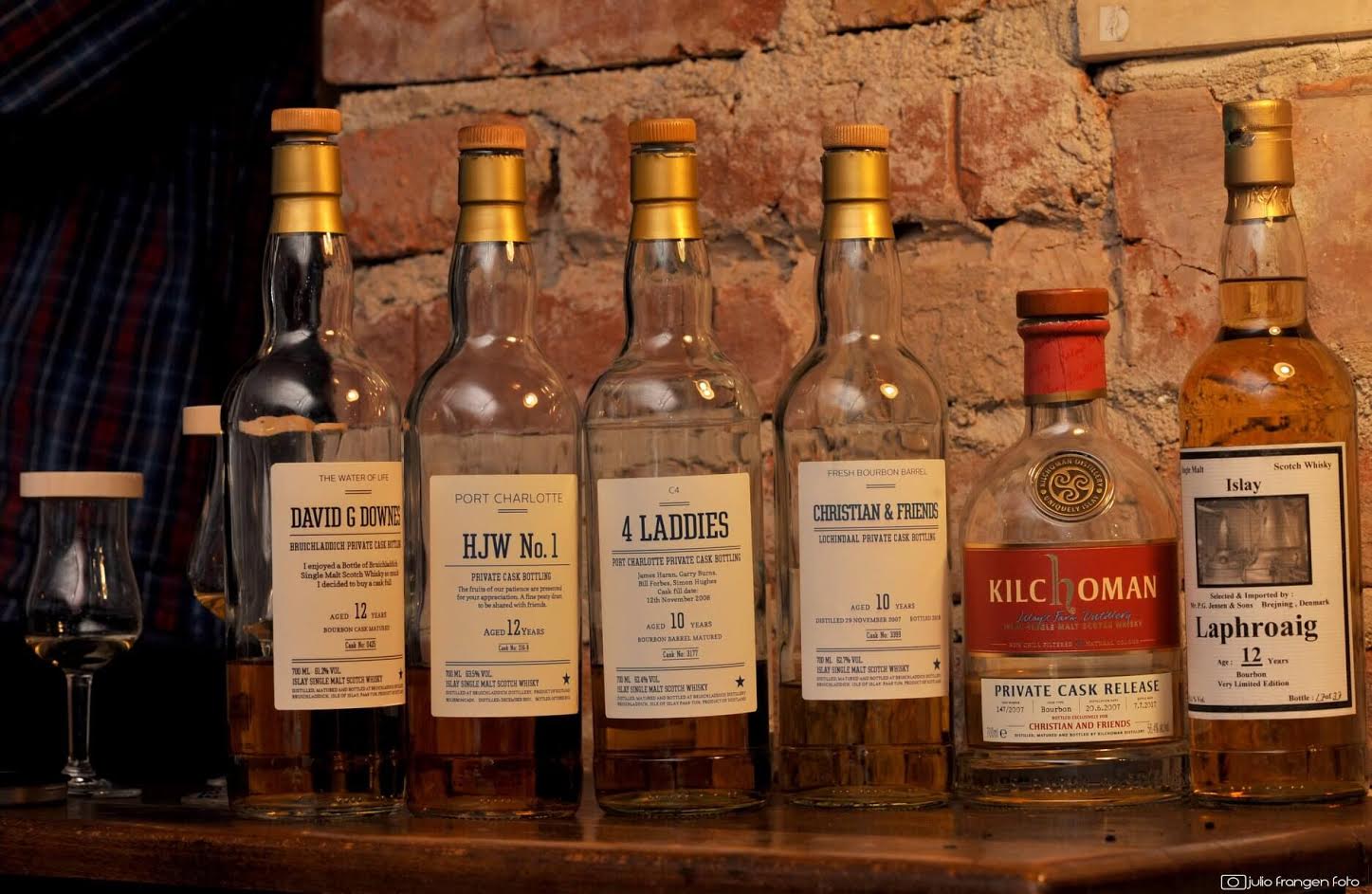
When you enter the wine bar, you enter a different atmosphere: dim lighting, slow music, chatting in the distance, old bottles of wine all around. On each table for each person, there are five glasses carefully filled with various whiskeys, covered with a wooden cap so that whiskeys do not lose their quality. As the evening progresses, Tomislav Ruszkowski explains the content of every glass. In an educative and intriguing way, he talks about the history behind every bottle and barrel. Guests, who are mostly friends of Ruszkowski, try every whiskey, make a comparison between them, comment, and enjoy every breath of those rare specialties.

During a break in the presentation, I got a chance to talk to Tomislav Ruszkowski personally.
Where does your love of whiskey come from?
Many years ago, at a Christmas Eve family gathering, my father opened a bottle of Single Malt whiskey. Until that day, we had tried Ballantines, Johnnie Walker, etc., but this fifteen-year-old whiskey was extraordinary. In the year 2003, I started to dig more into this, and that evening was the reason. This whole domain of Single Malt whiskeys has many organoleptic combinations and beauty. But Scottish whiskeys aren't just that, they are also about the people who are making them, the nature, history, stories...

Are you self-taught, or did you attend presentations of other professionals?
When I first get involved in this story, there weren't any presentations I could learn from. But I traveled a lot (I try to go to Scotland at least once a year), so I learned a lot from the owners of the distilleries, I have read a lot of books, and of course, I use the Internet as an inexhaustible source of information. Now I love to attend other professional lectures because there is always room for more knowledge. I know a lot about this topic, but I like to discover additional fine details. The late Silvano Samaroli, the greatest whiskey persona, said he is more attracted to the imperfection of some whiskey than perfection. Because perfect is perfect. Flaws are the things that lead you to new worlds.

Tell us the story about your presentations in Zagreb and how they started?
The Whiskey Fair here in Zagreb demonstrated that many people are interested in that specific drink. I held a couple of presentations at this Fair, but as the interest grew, I decided to begin my own evenings here in Bornstein. I started with a group of ten people, while now 35 people are the usual number of guests. Of course, there are plenty of topics connected with Scottish whiskeys, so I always try to introduce people to them in an intriguing way. It is a challenge for me to make these presentations interesting enough for people who attend them, especially if they are new to this world. In addition to Zagreb, I have held presentations in Rijeka, Istria, and Italy.

When in Scotland, which distillery is a must-visit? Do you have a favourite you are always returning to, or do you visit a different distillery every time?
My first journey was to the island Islay, to the distillery Ardberg. We had to change our plane three times, three times the plane was late. There was a terrible storm. So I guess a visit to this distillery will always remain in my memory. But to be honest, the whole island, all of these distilleries produce such high-quality whiskey that it is very hard to choose.

Do you have a particular favourite whiskey?
Well, that is hard to say. Today my favourites are the ones we are having here. But if I have to choose, I would go with some Samaroli edition of Laphroaig. The reason lies in the scent that today whiskeys don't have, for those older whiskeys were produced using different types of yeast and barley.

What is the most significant thing for you in whiskey?
Fragrance. You taste whiskey with your nose, mouth, and with the third dimension, which brings you all the flavours that overlap one with another like ocean waves when you swallow the liquor. But the most important thing for me is the fragrance that fills my nose. In this way, I can feel most of the things I like in whiskey.

After a short pause, guests returned to their sites and eagerly awaiting the resumption of proceedings. In the end, each guest commented on his favourite number as well as his least favourite at that time. In the late-night hours, which are now cold enough to feel uncomfortable, unless you just tried a couple of whiskeys from the private barrel, I said goodbye to this whiskey world.
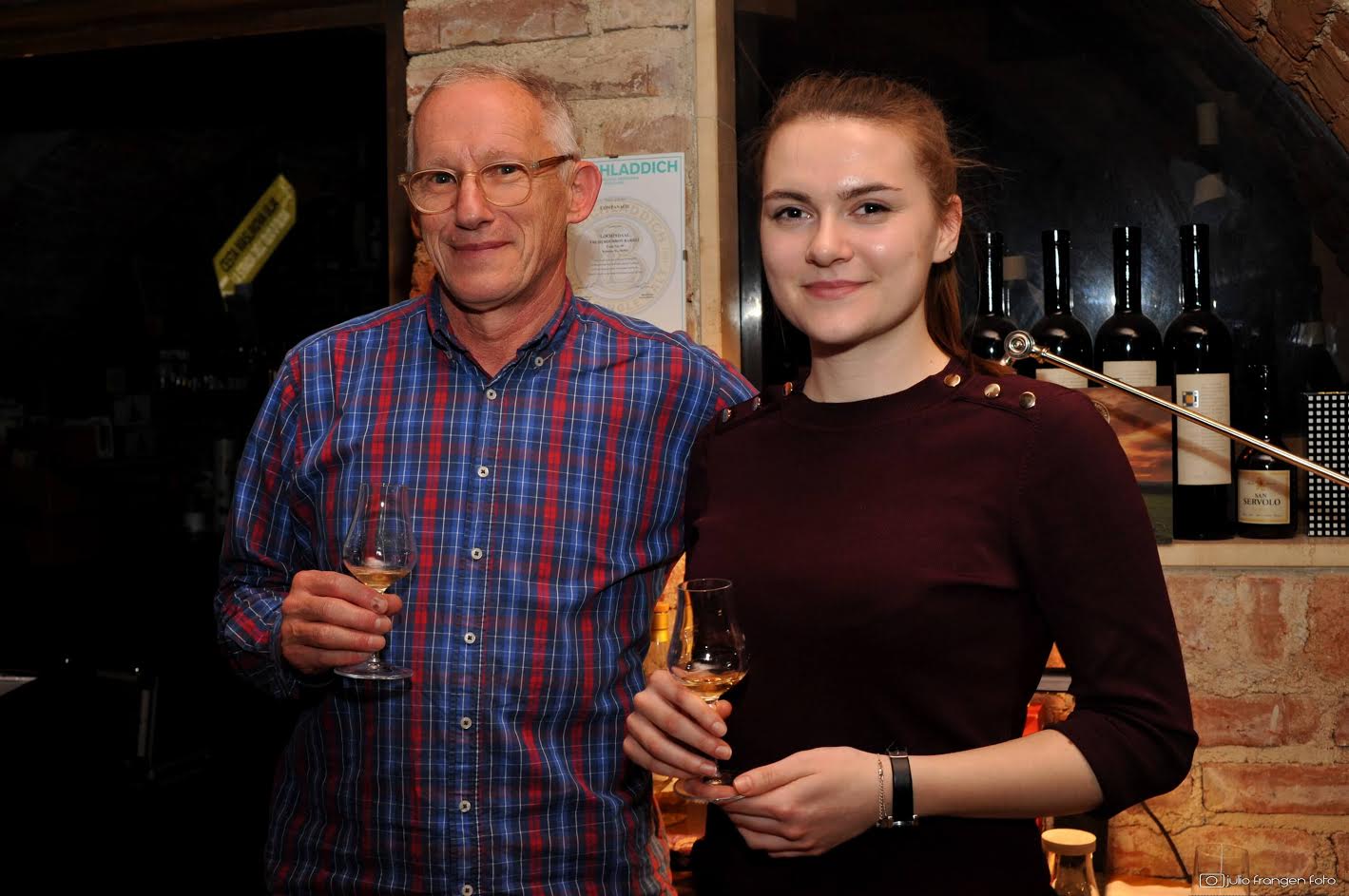
I am genuinely grateful to Tomislav Ruszkowski for the conversation as well as to Julio Frangen for the great photos.
If the story got you interested enough in the world of whiskeys, make sure you visit Whisky Fair and Whiskey Leaks that are held every year in Zagreb.
Inviting Zagreb Catholics to Mass, Day Trip to Croatia's Only Miracle Town
February 27, 2020 - I am amazed at how few people in Croatia know about its only Vatican-authenticated miracle. An invitation to Zagreb Catholics to discover it during Sunday Mass.
There are many things that amaze - and continue to amaze - me about living in Croatia. Among them are the fabulous discoveries I am making here on a monthly basis, many of which are known about by only a few people. I summarised an overview of 2019 fun in an end of year post - Why I Live in Croatia: 30 Incredible Discoveries in 2019 Alone.
Among those discoveries was finding out that Croatia only has one Vatican-certified miracle, and one which you can actually visit. In contrast to Medjugorje, where there is actually nothing to see and which has not been endorsed by the Vatican, and which attracts more than a million tourists every year, Croatia has its very own authenticated miracle which you can actually see, along with the Papal Bull that was issued by the Vatican.
A one-hour drive from Zagreb.

The Eucharistic Miracle of Ludbreg is a fascinating story of three churches, which I have written about before (full story here), and it comes with some rather unusual additional touches, such as this very rare fresco of the Last Supper, with the Eucharistic Miracle featured, and the disciples replaced by prominent Croatian saints and religious figures - find out who they are here.
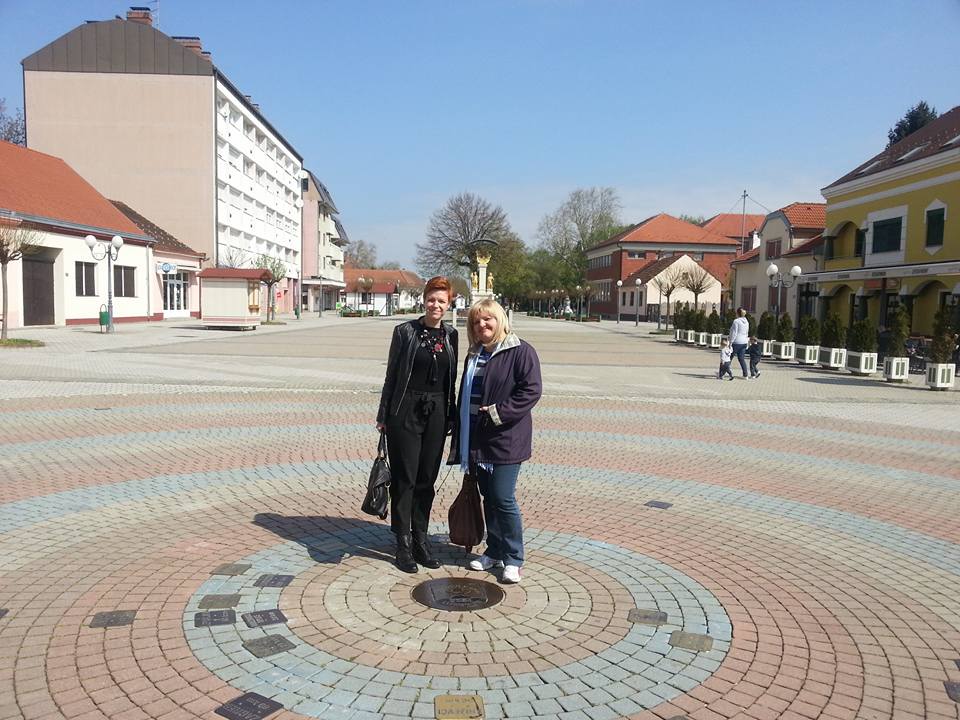
Ludbreg is best known, of course, as being 'the centre of the world', and if I ask locals what they know about Ludbreg, this is usually all that they come up with. And if I ask people here if they know which is the only certified miracle in Croatia that you can visit, only one person has so come up with the right answer.
In fact, it has become rather a fun hobby to tell Catholic friends the story of the three churches and then guess the location. Invariably, they get sucked in by the story, but still have no idea where it is.
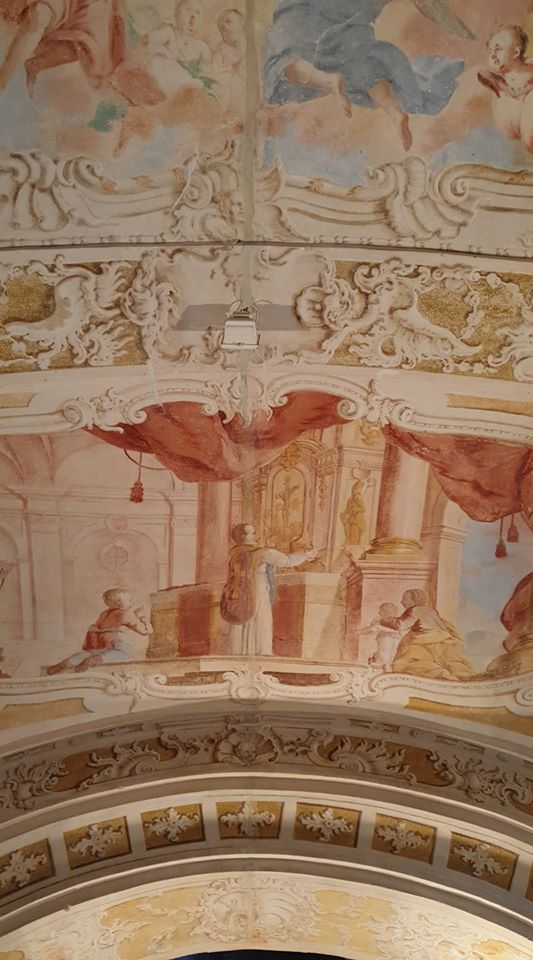
You can read the whole story in the link above, but it is beautifully told in the frescoes on the original chapel where the miracle took place.

Having enjoyed the chapel, one of the many fascinating exhibits is the Papal Bull issued by Pope Leo X back in 1513, which confirmed the authenticity of the Eucharistic Miracle of Ludbreg.
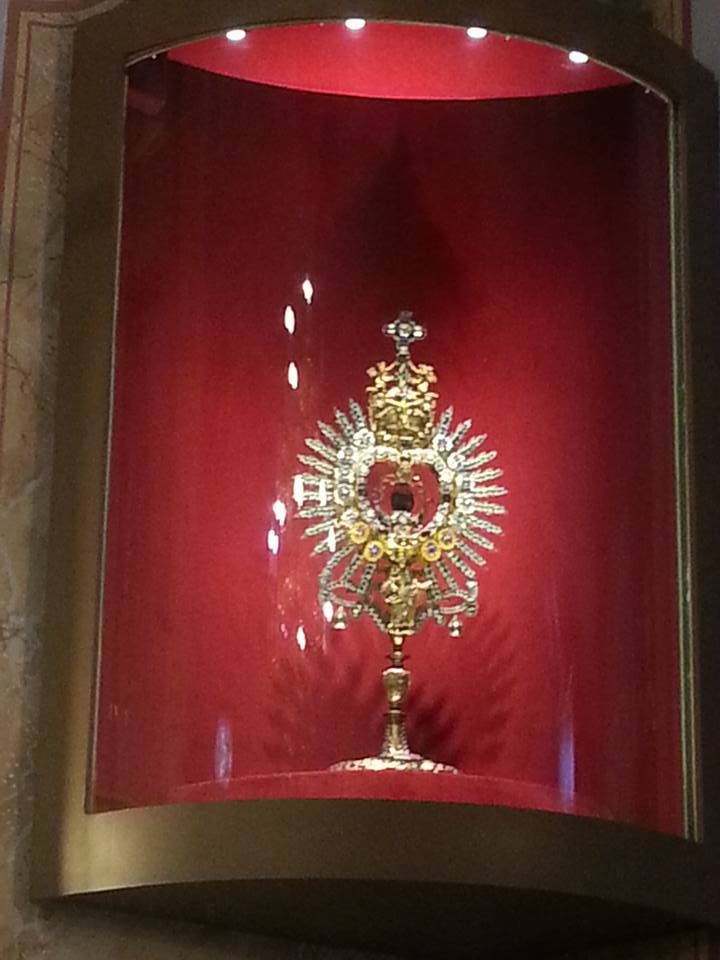
The chalice holding the blood is not in the chapel where the miracle occurred, but in the main church just a few metres from the centre of the world.
With so many Zagreb Catholics going to Mass each Sunday, why not do something a little different for the Sunday worship - Holy Mass by the centre of the world in the presence of the only certified miracle in Croatia.
The very helpful Ludbreg Tourist Board provided me with information about Mass times on Sundays - 07:30, 09:30 and 11:00.
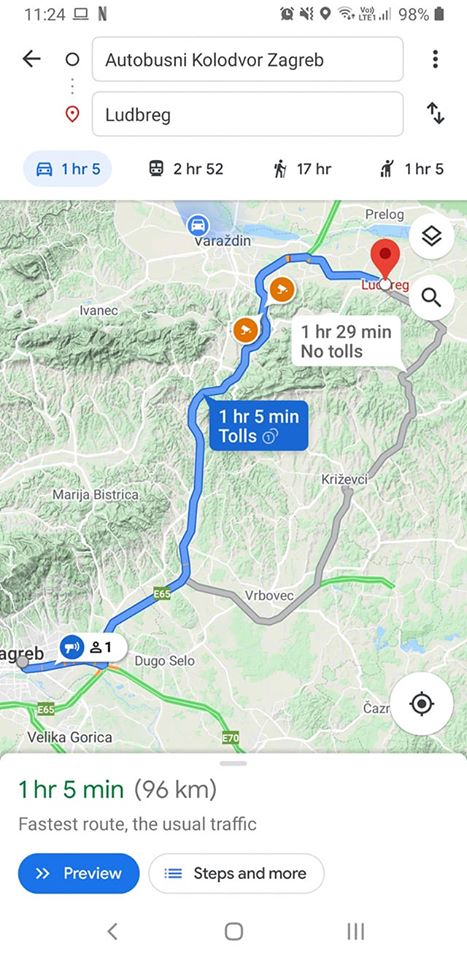
Ludbreg is just an hour by car from Zagreb, so not too far for a little day trip to discover a little of Croatia's heritage as well as attending Mass.

And while many complain that things are shit on the Adriatic coast during winter, things are open all year in Ludbreg. In addition to the three hotels working all year, there are five restaurant choices for Sunday lunch, according to the tourist board:
Pivnica Mejasi (on the main square, next to hotel Amalia), Hotel Raj (across from the shrine), pizzeria "Shark" next to Hotel Raj), restaurant Crn-Bel (in the hills not far from the center of town) and Restaurant Arabela (outside the town on the main road to Koprivnica, maybe 10 min drive away from the center).
One thing to note for those interested in doing the day trip is that the frescoed chapel (which is REALLY impressive) is not open to the public, but can be opened by appointment. The Ludbreg Tourist Board would be happy to organise that after Sunday Mass for anyone interested, but only by making an appointment by email no later than the previous Wednesday. You can contact the Ludbreg Tourist Board via their website, which is in English and Croatian.
For the latest news from Ludbreg, follow the dedicated TCN section.
Davis Cup: Croatia Tennis to Play India in Zagreb for Spot in 2020 Finals
February 27, 2020 - The Davis Cup match between the Croatia tennis team and India will be held in the small hall of Dom Sportova in Zagreb from March 6-7. At a presentation at the Westin Hotel in Zagreb, the organizing committee confirmed that all preparations were in full swing and once again urged fans not to miss the opportunity to cheer on Croatian tennis stars at home.
HRT reports that the Croatia tennis team will meet the national team of India in Hall 2 of Dom Sportova from March 6-7, 2020. The winner will secure a spot at the Davis Cup finals in Madrid in November.
“The stakes are really high and India needs to be taken seriously, especially since they are coming with the strongest squad possible. We are not complete, we will wait for Coric until the draw on Thursday, March 4, but I think that without him we have enough strength to, with the support of our fans, record the win,” said national team coach Vedran Martic at a news conference in Zagreb ahead of the Croatia-India Davis Cup series.
Borna Coric sustained a hand injury in Rio de Janeiro, but since it is not a serious injury, we will wait until the last minute, Martic added.
Marin Cilic (ATP - 36), Borna Gojo (ATP - 276), Nino Serdarusic (ATP - 295) and two doubles specialists Ivan Dodig (ATP - 10) and Mate Pavic (ATP - 16) will play for the Croatia national team.
India national team coach Rohit Rajpal is bringing the strongest possible lineup for the qualifiers against Croatia in Zagreb, in which the highest-ranked player in the individual competition is 22-year-old Sumit Nagal (ATP - 127), and a strong veteran doubles team will consist of 39-year-old Rohan Bopanna and 46-year-old legend Leander Paes.
In addition, 30-year-old Prajnesh Gunneswaran (ATP - 127) and 25-year-old Ramkumar Ramanathan (ATP - 180) will compete in the individual matches.
“India will base their tactics on two wins against our other player, be it Gojo or Serdarusic, and they have a great and experienced doubles team of Bopanna-Paes if they play. But we also have a great doubles team, Pavic-Dodig, and I believe that Gojo and Serdarusic have a chance to record at least one win. Cilic is in good form, although he lost in Dubai. The good thing is that we also have seven days of training and getting used to the grounds,” Martic said.
The match will be played on a hard court in the Small Hall of Zagreb's Dom Sportova. On the first day, Saturday, March 6, there are two singles matches scheduled, and on Sunday, the doubles will be played first, followed by the singles.
“I am glad that the Davis Cup is back in Croatia again, and this is an opportunity for Croatian fans to finally see our best tennis players. I expect a win and a good atmosphere,” said Croatian Tennis Federation (HTS) President Nikolina Babic.
The match between Croatian and India in Zagreb will be one of twelve qualifying rounds, and the winners will join last year's semifinalists Spain, Canada, the United Kingdom and Russia, as well as the national teams that received the invitation, Serbia and France.
To read more about sport in Croatia, follow TCN’s dedicated page.
Flights to Croatia: Croatia Airlines Boosts Zagreb-Amsterdam, New Condor Line to Dubrovnik
February 25, 2020 - The latest news from around Croatia’s airports for new flights to Croatia with updates from Zagreb and Dubrovnik.
Avio Radar reports that Croatian national carrier and Star Alliance member Croatia Airlines will strengthen the Zagreb-Amsterdam route in 2020. Namely, in addition to morning flights, a second flight on Tuesdays will be introduced in the afternoon. A total of eight flights per week will be offered. The additional flight on Tuesdays will run from April 28 to September 29, 2020. An Airbus A320 and Airbus A319 aircraft will serve this line.
The additional flight on Tuesdays is being introduced instead of the Dubrovnik-Pula-Amsterdam seasonal route, which will no longer be available.
Furthermore, Avio Radar reports that German airline Condor has begun selling tickets for a new seasonal route from Germany to Croatia. Namely, the Hanover-Dubrovnik route will be in service once a week, from Saturday, May 30 to October 24, 2020. An Airbus aircraft has been announced for this line.
This is the second Condor line from Germany to Dubrovnik in addition to the existing line from Frankfurt. Condor announced earlier that it would cancel the Hanover-Zadar route for this year.
Last year, Eurowings flew from Hanover to Dubrovnik twice a week, on Thursdays and Sundays, though that line is no longer on offer.
Ex Yu Aviation reports that Croatia Airlines has presented a plan for the near future. The national carrier will run three flights per week from Zagreb to Sofia and Podgorica this summer, as TCN already announced.
“We are expanding our network of destinations to a total of forty cities in 26 counties. That is a respectable number for a small nation such as Croatia,” said CEO Jasmin Bajić.
The new routes will not only help ‘point to point’ travelers but will improve loads on services to Western Europe by generating transfer traffic, Ex Yu Aviation said.
Furthermore, Croatia Airlines’ passenger numbers are up 1% thus far in 2020, though that could change with the spread of Coronavirus.
“It [virus] has had less of an impact on Croatia Airlines than other European carriers which are dealing with this major issue. Based on our advanced bookings for March, we do see a slump In demand compared to previous years. However, we are still not considerably affected”.
To read more about travel in Croatia, follow TCN's dedicated page.
Coronavirus: From Shanghai to Seoul to Zagreb: Why I Felt Safer in China
February 25, 2020 - How seriously is Croatia taking the coronavirus threat? An alarming account from a recent air passenger from Shanghai to Seoul to Zagreb.
I don't believe in doing clickbait articles, especially when the topic is a negative one. I also don't believe in scaremongering, and I am aware that our portal is widely read internationally and used by many as the source of news about Croatia. It is one of the reasons we have a focus on positivity and constructive criticism. Of course, this being Croatia, one cannot be positive all the time, given the absurd nature of life in this beautiful country. But we also have a duty to report and inform on important matters.
There are - at time of writing -still no confirmed cases of coronavirus in Croatia, thankfully. On the streets of Zagreb yesterday, I counted three masked pedestrians all day, and so while the topic is close by (all the more so with 7 deaths in Italy at a time when many Croats were in Italy for the cancelled Venice carnival), it is still a topic which is joked about a lot in the cafes - a problem elsewhere that is not affecting Croatia.
And then I read a Facebook post from a friend who had recently returned to Croatia from China, flying into Zagreb from Seoul via Doha, having started from Shanghai. She posted at her shock at the lack of any controls or registering of passengers on arrival, and the lack of checking of passengers' travel history. As a responsible citizen, she declared that she had been in China and submitted herself to an examination to a doctor at the airport (who wore neither mask nor gloves). She was the only passenger to do so. All the other passengers melted away into the Croatian capital and beyond. Unchecked and untraced. I contacted her for more information about her time in China and South Korea and the return to Croatia. We communicated online, for she is sat at home away from people. Just in case.
She flew to China for a holiday in January and was due to return in early February, but as a result of the outbreak of the coronavirus, all flights were cancelled at the end of January.
Daily life in China changed very quickly as the central and local government adapted to the new situation. She had clear instructions from local authorities regarding things she could and could not do anymore. She told me that it is very important to note the role of the community and taking care of others in Chinese culture. It is different from the European way, and Chinese people always think about their community and country. They have the ancient philosophy in their blood
For the first few days, there was a little confusion but no panic, although it t is true that masks, detergents, all products for disinfection were quickly gone from the shelves. The authorities ordered people to register for masks and she received hers after a few days. People had to register close to their house or even at the entrance to avoid crowds. Afterwards, they got a message when and where to pick up the masks for the family.
"It is important to say that these masks prevent the spread of the virus from a sick person but they do not protect so much if you have a mask but the person next to you is coughing and sneezing but does not wear a mask. Since this virus could be asymptomatic for a long time and we are not aware of how long, it is important to wear masks to protect other people. It is something people in Europe cannot understand. They laugh at you, because they think you are crazy and in panic mode.
"I saw that in Zagreb on arrival.
"But back to China: Immediately after the epidemic started, all museums, theatres, parks, cinemas etc were closed. All Lunar New Year parties and celebrations were cancelled. All company dinners were cancelled. People were told to wear masks everywhere they went. It was impossible to enter the bus, metro, public places without a mask. Temperatures were taken in front of supermarkets, shopping malls, hotels. Railway stations and metros had thermo cameras to screen all passengers and if someone had a temperature higher than 37.3, they were isolated. Very quickly it became punishable by law if you did not wear a mask. They use facial recognition technology to send a fine to the person who breaks the rules. There are even drones which spot people without masks which a message to put the mask on or go inside immediately. There were also several applications to track the spread of coronavirus.
"In the first few days, food prices in shops went up very quickly. It was reported to the Communist Party and very quickly the shops with this practice were fined or closed, and prices came back to normal. This all happened at the busiest travel time of the year - the Lunar New Year or Spring Festival, when the whole country is on the road.
"Shanghai is usually empty during New Year as most of its residents return to their villages and towns. Shanghai was very afraid of the mass return of millions of people - the city has 25 mln people. That is why they announced that schools, kindergartens, universities would remain closed until further notice. Companies could not start work before February 9, and those who could work from home were prohibited from coming back to the office.
"Shanghai decided to go on lockdown to stop the virus. It means that till now anyone without permanent stay in Shanghai could not come back to the city. Airports, railway stations, highways were checking everybody who came back to the city. From 51 highway entrances to Shanghai, only 13 remained open so they could scan everybody and could measure the temperature of everybody. Everybody who comes back to the city HAS TO stay 14 days in home quarantine if there are no symptoms. Those with symptoms were immediately transferred to hospitals or quarantine units.
"FOR FOREIGNERS: We had an emergency number to call 24h if we had any questions regarding the virus. It was also an emergency number for people who did not feel well and had mental problems due to the situations or could not cope with all restrictions. It was also the number for help to children and animals who due to quarantined owners were left alone at home. We got also a new "passport" to enter our accommodation. Nobody else could enter the building. ONLY PEOPLE WHO LIVED THERE. NO FRIENDS ALLOWED. NO VISITS.
"Every time our temperature was taken on our way in and out. They even sent people door to door to enter every apartment to check how everybody is. If somebody looked sick, there were immediately taken to hospital.
"BUILDINGS: public buildings were disinfected a few times per day. Ours was disinfected twice a day with special attention paid to the elevator: buttons covered with plastic and disinfected with chlorine twice a day. Hand cleaning facilities were everywhere. Restaurants were completely closed with the lockdown. Only those who could serve take away food could work. People could not enter inside. Everybody needed to wait outside to avoid closed spaces.
"I am amazed at how well the Chinese dealt with this unprecedented situation. Their crisis management skills are to be studied in the future. I guess it is easier due to the system they have in the country which looks like the best system ever in times of crisis like this. I was very saddened by the opinions of people who tried to put the blame on the Chinese people, their culture and way of life. Most of those people I guess have never been to China
"I do not want to criticise Croatia or the European Union at this time, but I hope this can help a little to understand how serious the situation is and that we must act quickly and coordinate all forces. I only hope there will be enough money transferred to this cause. We should be grateful to China for what they did regarding the quarantine of 750 mln people. It could be already rampant all around the world if they did not.
"I can add that I arrived in Zagreb via Seoul and Doha. In Seoul: there is a special section of the airport for people arriving from China. Everybody is checked first by thermal camera and if they pass that point, they go to quarantine officers for interview. You have to give your passport, address, mobile phone and they check immediately if it is correct. They call you immediately. If the number is wrong you pay a fine and risk quarantine for 14 days. Then you have to download an application which sends you messages for 14 days. You have to fill out a questionnaire every day: temperature, cough, sore throat etc. After this, you receive a certificate and you may go to immigration. Even before you board the plane you have to fill out a health declaration.
"Things are very different flying into Zagreb. Since there are no direct flights with China, nobody really checks. I declared myself that I was in China and gave my data to the police and doctor. I feel that more should be done. I was very surprised to see that the doctor at Zagreb airport did not even have a mask or gloves. This is not expensive and should be a minimum. After my experience of everyone being masked in China, I was a little afraid I may catch something from the doctor...
"Many people from Croatia have visited China and come back recently and if you do not tell the police and gave them your ID instead of passport it looks like you may pass. It is hard to believe but it looks like that.
"Since I have declared my stay in China I have to call the doctor every day and report my health. That is all.
"I kept my mask on, but the other 10 or so people just took off their masks before leaving the plane. I went home and am staying at home. I do not want to criticise, but I was VERY surprised at the lack of control in Zagreb when I came back from Asia, especially after all the hard work which has been done in China and South Korea. It makes us look somewhat ignorant. Although they are much bigger countries, they also have the money, knowledge and mentality to beat coronavirus. Sadly I do not see it here."
A fascinating account. I had one last question.
With the coronavirus threat, do you feel safer in China or Croatia?
"I felt much safer in China."
To follow the latest on the threat of coronavirus in Croatia, follow the dedicated TCN section.
The Croatian Government announced new measures to combat the virus on February 24.
Croatian Capital in Color: Zagreb Festival of Lights Returns this March
February 24, 2020 - The Zagreb Festival of Lights will be held for the fourth time, from March 18-22, 2020.
The Zagreb Festival of Lights will hold its fourth edition this year, featuring a romantic display of light installations along the streets of the Upper Town, new locations, and exciting features.
The Zagreb Light Festival, which has won over Zagreb residents and visitors with colorful installations over the past three years, will be held this year from March 18 to 22, 2020.
The Festival of Lights is a radiant way to welcome spring in the Croatian capital and is an event that many locals and tourists mark on their calendars to ensure they don’t miss a beat.
Along with the projections, audiovisual installations and other events on the fronts of buildings, streets and green spaces of the historic Upper Town, this year will boast new locations, with a vibrant palette of colors, amenities and an always energetic atmosphere.
Four years ago, the Croatian capital joined a number of international cities such as Lyon, Amsterdam, Helsinki, Prague, St. Petersburg. Petersburg and Berlin.
The 3rd edition last year brought many attractive audiovisual installations and projections in 20 locations around the historical center of Zagreb.
“The festival was held for the first time in 2017 when it had only seven locations in the Upper Town. Already then, we were recognized by the international association of the Festival of Lights based in Berlin, and they put us in their programs. We are pleased to promote Zagreb as a city and Croatia as a country that has a respectable Festival of Lights,” stressed Martina Bienenfeld, director of the Tourist Board of Zagreb, last year.
A special feature of last year was that three installations came from China, which were used to celebrate 2019 as the year of tourism and culture between Croatia and the People's Republic of China.
The festival was also extended to last one day longer last year, totaling to four days. According to data from the Zagreb Tourist Board, 28% more arrivals and 44% more overnight stays were recorded during the 2018 Festival of Lights, as guests named the event as their exclusive motivation for visiting.
All information about the locations and this year's Festival program can be found on the official website of the Festival.
To read more about lifestyle in Croatia, follow TCN's dedicated page.
HNL Round 23 Recap: Hajduk Shocks Gorica with 6:0 Victory at Poljud
February. 24, 2020 - The 23rd round of the Croatian First League was held from February 21 to 23, 2020. This round featured an unexpected Hajduk blowout against Gorica, while Rijeka topped Osijek in this weekend's derby.
Varazdin v. Lokomotiva (0:2)
Varazdin and Lokomotiv opened the 23rd round on Friday, February 21, 2020, in Varazdin in front of 1,787 fans.
Lokomotiva scored both goals in the first half thanks to Uzini (7’) and Karacic (38’).
Varazdin is currently in the last place with 15 points, while Lokomotiva is in 5th with 37.
Hajduk v. Gorica (6:0)
Hajduk and Gorica met on Saturday, February 22, 2020, at Poljud stadium in front of 8,847 fans.
Hajduk’s scoring spree starting in the 10th minute when Krekovic scored for 1:0. Jairo increased their lead in the 35th for 2:0, and Caktas made it 3:0 six minutes before the half.
Caktas scored again for 4:0 in the 47th, and Jairo’s penalty made it 5:0 in the 56th. Eduok scored 8 minutes after being subbed in for the final score of 6:0.
Hajduk is currently in 2nd place with 44 points, while Gorica is in 6th with 31.
Rijeka v. Osijek (1:0)
Rijeka and Osijek met on Saturday, February 22, 2020, at Rujevica stadium.
Gorgon scored the only goal of the game in the 11th minute for the Rijeka lead. Osijek’s Skoric was given a red card in the final minute of regulation time, and the game ended 1:0.
Rijeka is currently in 3rd place with 41 points, while Osijek is in 4th with 38.
Dinamo v. Inter Zapresic (3:2)
Dinamo and Inter met on Sunday, February 23, 2020, at Maksimir stadium in front of 2,378 fans.
Dinamo’s Leovac scored in the 6th minute to make it 1:0, though Bosec equalized just before the half to make it 1:1.
Kadzior helped Dinamo retake the lead in the 60th minute for 2:1, and Orsic missed a penalty in the 68th to keep the game at that score.
Gavranovic made up for the miss in the 72nd minute for 3:1, though Andric gave Inter their second goal in the first minute of injury time for a final score of 3:2.
Dinamo is currently in first place with 56 points, while Inter is in 8th with 17.
Istra 1961 v. Slaven Belupo (1:1)
Istra and Belupo closed out the 23rd round on Sunday, February 23, 2020, in Pula in front of 830 fans.
Paez scored for the Istra lead in the 4th minute, though Krstanovic equalized in the 33rd minute for 1:1, which was the final score of the game.
Istra is currently in 9th place with 16 points, while Belupo is in 7th with 22.
You can see the full HNL table here.
To read more about sport in Croatia, follow TCN’s dedicated page.
World Rally Championship Coming to Zagreb? Croatia Given Green Light
February 21, 2020 - The director of the World Rally Championship (WRC), Oliver Ciesla, visited Zagreb and officially offered Croatia the host spot of the WRC, according to the Croatian Auto and Karting Association.
HRTurizam and 24 Sata report that Croatia has never been closer to hosting the second most-watched octane sport in the world. WRC leader Oliver Ciesla held a series of meetings in Zagreb with the President and Secretary-General of the Croatian Auto and Karting Association, the City of Zagreb, and potential organizers. October was proposed as a potential date for the race, and Zagreb was given the opportunity to host the World Rally this year. The City of Zagreb supports the project and expressed its wish for Zagreb to host an event that boasts over 80 million fans.
"We plan to get the nomination, and if all goes well by the end of the year, all the doors are open to Croatia to become part of the Rally World Championship in the future,” said Oliver Ciesla, WRC director.
"After seven years of talks about hosting the WRC in Croatia, we have an official offer, after which the WRC's door opens. The importance of this event for Croatia is also supported by the Croatian Government, the City of Zagreb and other institutions. I hope that in the next ten days, the expert teams will conclude all the essentials for the end of the year to become a candidate. Thanks to the Mayor, our organizing team, and, of course, the WRC promoter for the offer. There are a lot of negotiations ahead, but we are on the right track,” said Davorin Štetner, president of the Croatian Auto and Karting Association
The story of the WRC in Croatia began by Croatia’s celebrated rally drivers Daniel Saškin and Marin Frčko, and after almost seven years of work on the project, this official offer is the result.
The World Rally Championship is monitored by more than 700 million viewers annually, of which four million viewers tracked the 13 WRC races in 2016, while the World Rally Championship is monitored by 1350 accredited journalists, producing over 12,000 TV hours. The WRC program is broadcast in 155 countries.
Profitability studies from 2018 prepared by the Faculty of Economics and Tourism from Pula, led by Robert Zenzerović, the Ethical Financing Cooperative from Zagreb, and a short study by the Department of Economics and Sport Management at the Faculty of Kinesiology in Zagreb, led by Sanela Škorić et al. Mat Bartoluci from the Faculty of Economics and Business, Zagreb, and data from other WRC races in the world, proves that this project is of great benefit to the Republic of Croatia.
In the most conservative calculations, the spending generated would be 22 million euro. The direct profit for the state, through VAT alone, is at least four million euro, while the indirect profit of the project through media is a considerable 41 million euro.
Official WRC data in Portugal for 2016 show that 910,000 viewers watched the WRC live stream (50% were foreigners; half of them were from neighboring Spain). The direct impact on the Portuguese economy amounted to a staggering 67.6 million euro, while the indirect profit amounted to 61.7 million euro. In regards to tourism, Portugal earns more than 1.5 million overnights a year from WRC alone!
The WRC would be a great promotion of Croatia and another global spectacle held in the country.
To read more about sport in Croatia, follow TCN's dedicated page.


